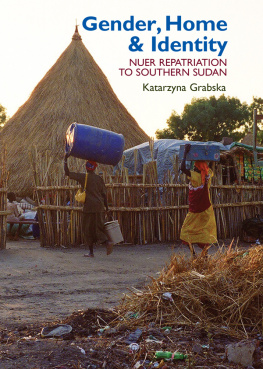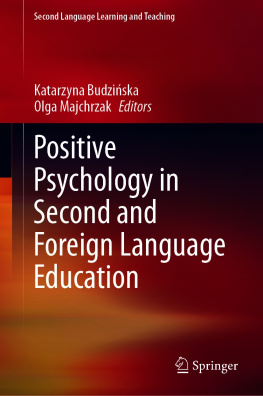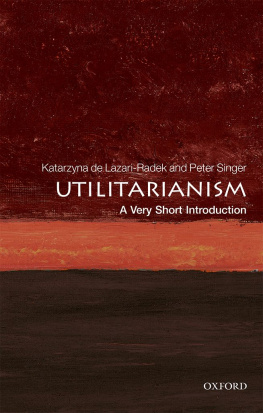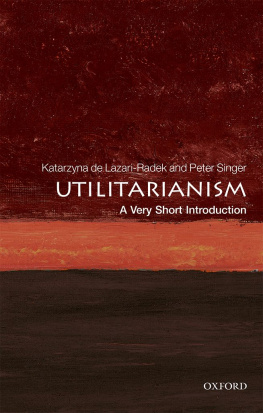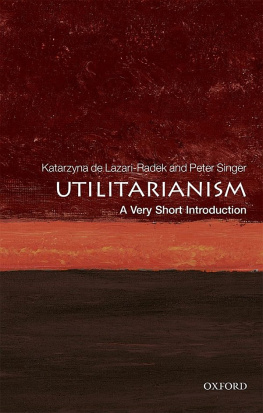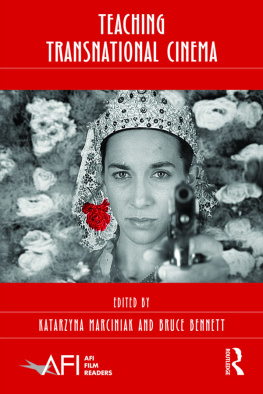SDG1 No Poverty
CONCISE GUIDES TO THE
UNITED NATIONS SUSTAINABLE
DEVELOPMENT GOALS
Series Editors
Walter Leal Filho
World Sustainable Development Research and Transfer Centre, Hamburg University of Applied Sciences
Mark Mifsud
Centre for Environmental Education and Research, University of Malta
This series comprises 17 short books, each examining one of the UN Sustainable Development Goals.
The series provides an integrated assessment of the SDGs from an economic, social, environmental and cultural perspective. Books in the series critically analyse and assess the SDGs from a multi-disciplinary and a multi-regional standpoint, with each title demonstrating innovation in theoretical and empirical analysis, methodology, and application of the SDG concerned.
Titles in this series have a particular focus on the means to implement the SDGs, and each one includes a short introduction to the SDG in question along with a synopsis of their implications on the economic, social, environmental and cultural domains.
SDG1 NO POVERTY
Making the Dream a Reality
BY
KATARZYNA CICHOS
Cardinal Stefan Wyszyski
University in Warsaw, Poland
AMANDA LANGE SALVIA
University of Passo Fundo, Brazil
Emerald Publishing Limited
Howard House, Wagon Lane, Bingley BD16 1WA, UK
First edition 2019
Copyright 2019 Katarzyna Cichos and Amanda Lange Salvia. Published under exclusive licence
Reprints and permissions service
Contact:
No part of this book may be reproduced, stored in a retrieval system, transmitted in any form or by any means electronic, mechanical, photocopying, recording or otherwise without either the prior written permission of the publisher or a licence permitting restricted copying issued in the UK by The Copyright Licensing Agency and in the USA by The Copyright Clearance Center. Any opinions expressed in the chapters are those of the authors. Whilst Emerald makes every effort to ensure the quality and accuracy of its content, Emerald makes no representation implied or otherwise, as to the chapters suitability and application and disclaims any warranties, express or implied, to their use.
British Library Cataloguing in Publication Data
A catalogue record for this book is available from the British Library
ISBN: 978-1-78769-628-0 (Print)
ISBN: 978-1-78769-625-9 (Online)
ISBN: 978-1-78769-627-3 (Epub)
CONTENTS
LIST OF TABLES
ABOUT THE AUTHORS
Katarzyna Cichos has a PhD and Masters degree in Law. Currently, she works as a Lecturer and Researcher at Cardinal Stefan Wyszynski University in Warsaw in the Faculty of Law and Administration. For many years, she was an active member of local community initiatives connected to community organisation, monitoring mechanisms of watchdogs and local aspects of good governance and sustainable development. Her research interests include legal aspects of sustainable development, poverty reduction, development assistance and the European Unions foreign and trade policy.
Amanda Lange Salvia has a degree in Environmental Engineering, and she is currently a Doctoral Student in Civil and Environmental Engineering at the University of Passo Fundo, Brazil. Her current interests include sustainability, sustainable cities, sustainable universities, environment management, energy efficiency and the Sustainable Development Goals.
ACKNOWLEDGEMENTS
This research was funded by the National Science Centre on the basis of the decision: 2014/13/N/HS5/01281
CHAPTER 1
INTRODUCTION
Although the international community has, for many decades, put efforts into eliminating extreme poverty, it is estimated that around 800 million people still live below the international poverty line of $1.90 a day. That figure reflects a decrease in the global poverty rate. However, around 40% of people in Sub-Saharan Africa continue to subsist in conditions of extreme poverty. Additionally, looking ahead, we must recognise the challenges posed by demographic trends: it is estimated that the world population will reach more than 9 billion by 2050, with the population of Sub-Saharan Africa set to more than double. It is further predicted that to satisfy increasing demand, global agricultural production in 2050 will have to increase by 60% over 2005 levels and water use could increase by 50% by 2025. This could cause around 5.5 billion people (two-thirds of the projected global population) to live in areas facing severe water stress (EU, 2013). The increase in the average age of the worlds population, armed conflicts and climate changes also need to be taken into consideration. This data indicates that the global community is perhaps at its final crossroad in finding a way to solve the problem of poverty, not only for the sake of the human dignity of the poorest but also to prevent negative consequences for the entire population of the world.
Economic growth still seems to be the most important issue when we consider sustainable development. However, we can see that there are those who have been left behind, living in conditions that prevent them from profiting from global or even national growth. We shall consider some new approaches to tackling the eradication of poverty. However, we also need to recognise that when we talk about those living in poverty and those with a right to development, we are not talking about the same group of people. No one can argue against everyone having the right to development; equally, it is not possible to contend that everyone is free from extreme poverty (Cichos, 2016). There are always poor people in developed countries who have access to basic health care, free education and initiatives that can support them; however, there are also those who live in extreme poverty without access to education, health services, assistance, or even water. The question is whether the worlds community should treat everyone (i.e. those who live in extreme poverty and those who do not) equally, or perhaps concentrate its particular attention on those who have been left behind.
On 1 January 2016, the 17 Sustainable Development Goals (SDGs) of Agenda 2030 for Sustainable Development, adopted by world leaders in September 2015, officially came into force. The aim of Agenda 2030 is to mobilise efforts to end all forms of poverty, fight inequalities and tackle climate change. The SDGs follow and expand on the Millennium Development Goals (2000) (MDGs) which were agreed upon by governments in 2001 and expired at the end of 2015. The main aim of the SDGs is to complete the action taken by the world community to implement MDGs and to ensure that no one is left behind. Goal 1 aims at ending poverty in all forms everywhere and, as this first target indicates, at eradicating extreme poverty for all people everywhere by 2030. Although Agenda 2030 provides 17 goals, the first of these seems to agree with the central assumption that no one should be left behind. There is no doubt that it will be judged a global failure if we achieve even the very challenging goals and targets recommended by Agenda 2030 without providing basic living conditions to the poorest.
This book is about those who have been left behind and concentrates on asking what can be improved within the legal framework and practice. If we consider that there is frequently no rational explanation for the existence of poverty (such as war or a humanitarian disaster), we should ask the important question of how we deal with those countries and societies needing assistance and how we deliver aid in the most effective way while preventing corruption and other abuses. This book offers a new look at global problems and presents solutions to show how the global community can eliminate poverty and achieve its global promise, SDG1, today. It means that the vision of ending extreme poverty and providing dignity to all human beings will no longer be just a vision. It is time to bring it about, and we contend that the international community already has all the necessary instruments and knowledge to do this.




